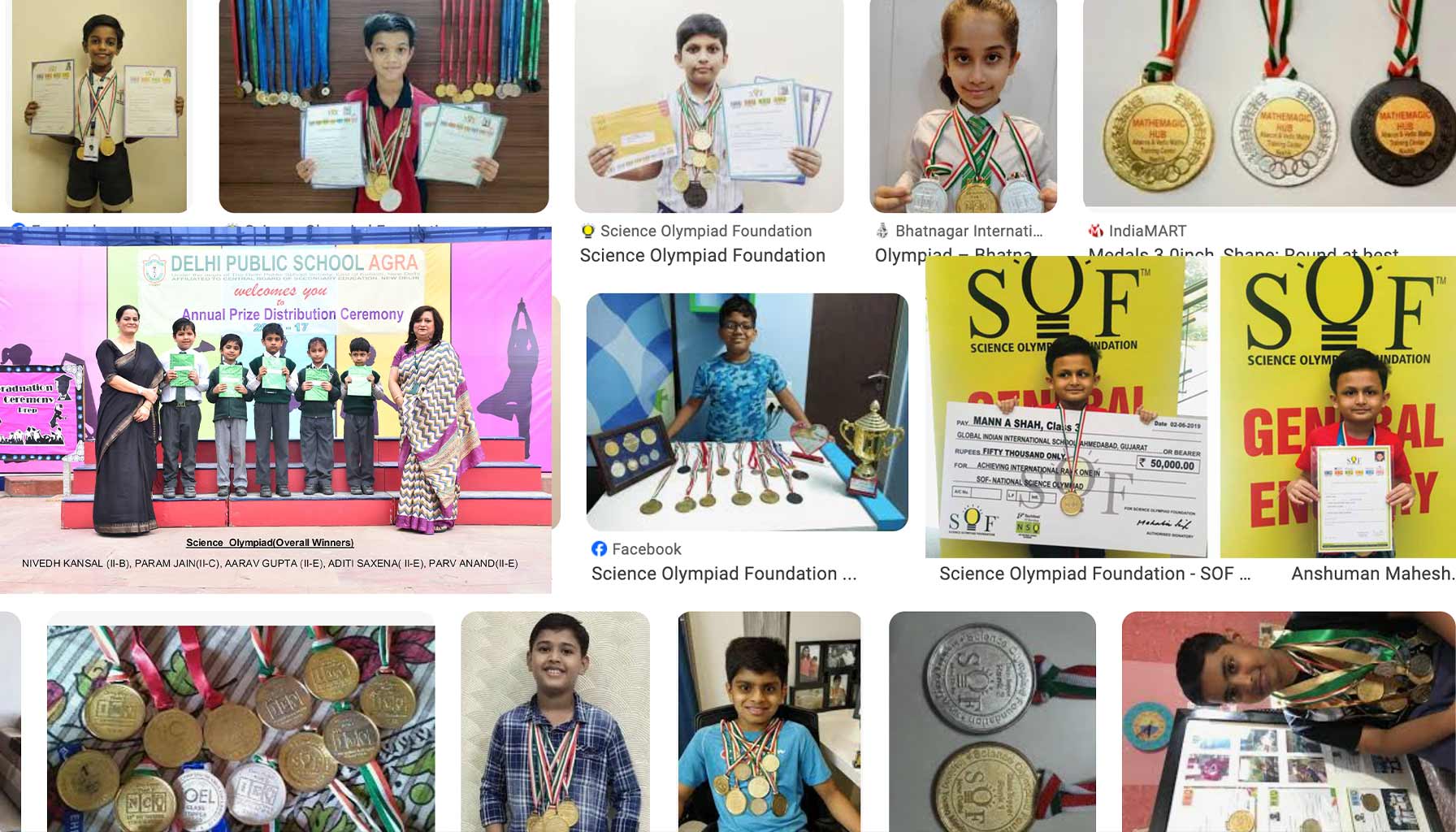The increasing popularity of Olympiad examinations for young learners, including those in early primary grades such as first and second, in India, presents a multifaceted issue that warrants a nuanced analysis. These examinations aim to identify and nurture young talent across various disciplines—science, mathematics, computer science—by challenging students with problems that test their understanding, reasoning, and application of concepts beyond the regular school curriculum. While the intent behind Olympiads is commendable, their implementation and the consequences for students as young as six or seven years old necessitate a closer examination.
The Positive Aspects of Olympiads
Olympiad examinations offer a platform for exceptional talents to shine at an early age. They:
• Encourage a deep understanding of subjects, fostering a love for learning and intellectual curiosity.
• Provide an opportunity for students to gauge their aptitude and interest in subjects beyond the regular school syllabus.
• Help build confidence and a sense of achievement among those who perform well, potentially motivating them towards higher academic pursuits.
•
The Concerns
However, the extension of these competitive exams to very young learners raises significant concerns:
Psychological Pressure:
The competition introduces stress and anxiety among young students, who may feel overwhelmed by the expectations to perform.

The stress and anxiety may be fueled by societal expectations and the prestige associated with academic excellence. Dr. Anjali Chhabria, a Mumbai-based psychologist, points out that "the pressure to perform academically in India starts at a very young age, and competitions like Olympiads can exacerbate stress and anxiety among children." She emphasizes the need for a supportive environment that encourages learning for the sake of knowledge rather than purely for competition. The emphasis on performance can lead to stress-related issues, such as anxiety disorders and depression, which can hinder a child's ability to learn and grow.
Unhealthy Comparison:
The celebration of Olympiad winners in a highly competitive educational environment like India's can lead to unhealthy comparisons, affecting the self-esteem of those who don't achieve similar success. Highlighting the achievements of Olympiad winners in media and school communications can create a sense of inadequacy in others, fostering an unhealthy competitive environment. Dr. Samir Parikh, a prominent Delhi-based child and adolescent psychiatrist, warns against the adverse effects of comparing children based on their achievements. "Such comparisons can negatively impact a child’s self-esteem and motivation, leading to a fear of failure that stifles their willingness to take on new challenges," he explains. Dr. Parikh advocates for recognizing and valuing individual progress and effort over competition, to foster a more inclusive and supportive educational atmosphere.
Early Specialization Pressure:
Pushing students into specialized areas of study prematurely can narrow their educational experiences, limiting exposure to a broader range of subjects and activities. The focus of Olympiads on specific academic subjects can push children towards early specialization, potentially limiting their holistic development and exploration of other interests. According to Dr. Kavita Vaid, a child psychologist based in Bengaluru, "Early specialization pressured by competitive exams like Olympiads limits children’s exploration of diverse fields, which is crucial for their overall development." She highlights the importance of allowing children to pursue a broad range of interests, which supports cognitive flexibility and creative thinking. Dr. Vaid stresses that a balanced education should include not just academics but also arts, sports, and social activities.
Parental and Societal Expectations:
In the Indian context, where academic success is often seen as a path to social mobility and respect, parents and society may place undue pressure on children to excel in competitions like Olympiads.

Dr. Deepali Rao, a clinical psychologist practicing in New Delhi, discusses the impact of parental and societal expectations on children's mental health. "The weight of parental expectations can lead to a significant amount of stress and anxiety in children, diminishing their natural curiosity and love for learning," she observes. Dr. Rao advises parents to focus on nurturing a supportive environment that celebrates learning and personal growth over competitive success.
Recommendations
For Parents
• Support and Understanding: Recognize and respect the child’s interests and capabilities. Not every child is inclined towards or will excel in Olympiads.
• Encourage Balanced Development: Focus on a well-rounded education that includes arts, sports, and other areas of interest alongside academics.
For Schools and Teachers
• Inclusive Recognition: Celebrate various forms of success and talent within the school environment, not just academic achievements in competitive exams.
• Counseling and Guidance: Provide support for students to manage stress and understand that academic competitions are just one of many pathways to success.
For Media
• Responsible Reporting: Highlight stories of diverse achievements and the importance of effort and personal growth over winning competitions.
For Government and Policy Makers
• Regulatory Frameworks: Establish guidelines for the conduct of competitive exams, including appropriate age levels, to ensure they are developmentally suitable.
• Promote Holistic Education Policies: Encourage educational initiatives that value the overall well-being and diverse talents of children.
For Olympiad Organizers
• Review Age Policies: Consider the developmental appropriateness of subjecting very young children to competitive exams. Initiatives could be more beneficial if introduced at a later stage.
• Supportive Resources: Provide resources and guidance to help students prepare without undue stress, and educate parents and teachers on fostering a healthy learning environment.
Conclusion
While Olympiad examinations serve an important role in the educational landscape by identifying and nurturing young talent, their impact on young learners, particularly those in early schooling years, requires careful consideration and management. The collective efforts of parents, educators, policymakers, and Olympiad organizers are crucial in creating a balanced approach that nurtures talent without compromising the well-being and holistic development of children. Fostering a supportive, inclusive, and stress-free educational environment will not only help in identifying and cultivating young talents but also in ensuring their psychological and emotional health is safeguarded.












Recent comments
Latest Comments section by users